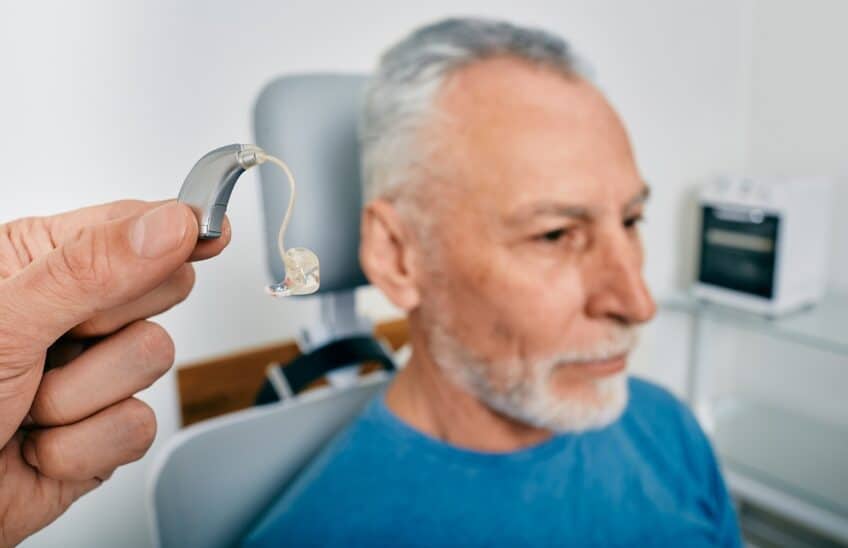Hearing aids are an essential item for millions of people who have hearing loss. These electronic devices provide ample hearing support, allowing people to navigate everyday life with greater ease and increased safety. Hearing aids are an investment in your health and wellness. They offer a range of features that are designed to support optimal hearing in daily environments. It is important to know that unlike glasses, there is an adjustment period with hearing aids. With glasses, you put them on and vision is instantly enhanced. But with hearing aids, it takes a short period of time to adjust to this new way of hearing. Practicing the following strategies can help you adjust smoothly.
- Get the most from hearing aid fitting. Your hearing aid fitting is the appointment where you will receive your hearing aids and they will be programmed to meet your specific needs. Your hearing healthcare provider will walk you through how to effectively use and maintain your device. It is important to pay active attention during this appointment so that you can learn everything about your device. Taking notes, bringing a loved one, and asking questions are ways you can ensure that you get the most from this appointment. This allows you to understand the ins and outs of your device so that you can maximize use.
- Always wear hearing aids. Hearing aids can be slightly uncomfortable at first. Integrating this new device in your everyday life can take some time getting used to. But it is important that you wear your hearing aids during waking hours. This allows you to get familiar with your device in different real-life settings which is how you get adjusted to them. The only time you shouldn’t wear your hearing aids is while sleeping and showering – unless instructed otherwise by your hearing healthcare provider.
- Start at home. Wearing your hearing aids in an environment you are already familiar with and completely comfortable in is a useful way to get adjusted to your hearing aids. Starting at home allows you to safely and comfortably move through spaces you already know how to navigate with your new hearing aids. This also highlights how you can experience a space (you deeply know) differently with hearing aids.
- Practice with loved ones. Another useful strategy is to practice with loved ones. Engaging in conversations with family members and friends with hearing aids can give you a sense of what is like to communicate with hearing aids. Doing this with people you know and feel comfortable with supports you exploring what works best for your hearing during these conversations. You may be less afraid or anxious to ask your loved ones to make adjustments to better accommodate your hearing. This is part of what adjusting to your hearing aids involve – learning how to engage in and move through hearing and communication.
- Take breaks. Hearing aids increase accessibility to sound so you will likely hear sounds you have not heard in quite some time. From birds chirping, to your microwave, and other people’s voices – the soundscapes you have access to in everyday life will expand. And while this is incredibly exciting, it can be a little overwhelming at first. Your ears and brain are learning to process sound in this new way and this takes time to get familiar and comfortable with. You may experience listening fatigue so it is ok to take breaks in the beginning.
- Be patient. It is important to know that this will get easier and more comfortable for you. There is an adjustment period but your hearing will adjust and eventually, this will be a seamless experience. So be sure to be patient with yourself and this process.
- Attend follow-up appointments. It is common to have a follow-up appointment after receiving your hearing aid. It is important to attend this appointment because it gives you an opportunity to provide feedback and ask follow-up questions about your device. If any adjustments need to happen or you want to explore hearing aid accessories, this appointment is the space for that.
Hearing aids are innovative devices that support hearing health. Practicing these strategies can support you as you adjust to new hearing aids. Contact us today!


